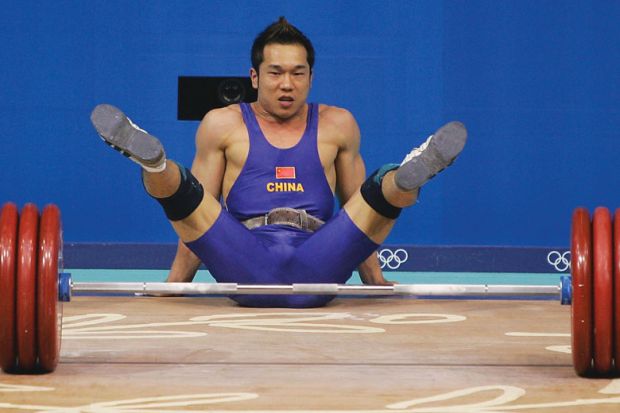China’s Double First Class excellence initiative, meant to propel universities into global greatness, has had “negative effects” that may decouple it from its original policy goals, researchers have warned.
Uneven funding has deepened the gap between universities in the country’s affluent east and those in the less privileged “middle” and west, according to an analysis of financial statements and interviews with sector leaders published in the journal Higher Education. Tsinghua University in Beijing, for example, has a budget that is six times larger than that of Lanzhou University in Gansu province, even though the excellence initiative classifies both as “world class”.
Elite institutions have used their financial advantage to poach talented academics from less well-resourced institutions, causing a brain drain from west to east, the study says.
Competition for state funding has also caused university administrators to close “weak” programmes and resort to practices such as hiring “shadow academics” to boost citation numbers.
The Double First Class project, launched in 2017, consists of 42 “world class” universities (WCUs) and covers 108 “world class” disciplines (WCDs). It replaced two similar initiatives from the 1990s. Collectively, these efforts have succeeded in pushing China up global university rankings, with Tsinghua entering the world top 20 for the first time this year.
The Double First Class Project puts pressure on institutions to excel in metrics weighed heavily in rankings, with generous financial rewards for those that can deliver. The government has spent billions of dollars based on a “deeply embedded assumption” that funding and sheer political will be enough to create world-class institutions.
However, the Higher Education paper argues that damage has been done to the diversity of course offerings and equality between institutions.
The researchers – from Shanghai Normal University, the Huazhong University of Science and Technology and UCL – interviewed decision-makers at three WCUs, from the east, the “middle” and the west of the country, to compare regional differences.
“Elite universities are becoming stronger, whereas others are more disadvantaged,” said an interviewee from the “middle” university.
An interviewee from the western university said “research universities in east provinces are the biggest threat to us”, adding that 100 of their institution’s professors had been poached in the past decade. While the Ministry of Education does not endorse this practice, it has not stopped it, either. Some provinces have set aside 80 per cent of their personnel budget for “bidding” professors away from rivals.
Universities under pressure to become “world class” by a certain deadline have also resorted to buying “ready-made knowledge” from “shadow academics”, meaning hiring postgraduate researchers or adjuncts on short-term contracts to churn out English-language journal citations. They are called “shadows” because they generally do not have a presence on campus.
Institutions “have no interest…or patience to deal with the growth process of young scholars”, said an interviewee at the eastern university.
There is also obvious favouritism towards science fields, which not only yield high citation numbers but are also removed from political or controversial topics. Of the WCDs’ 465 departments or programmes, 359 – or 77 per cent – are STEM-related.
Given that funding can be discipline-specific, some universities have closed “weak” departments or programmes in order to “squeeze into” the WCD designation.
One of the interviewed institutions closed entirely its school of education. According to its staff, the “sacrifice” was made to make the university “stronger” and more likely to attract state funding.
However, experts fear that in the long run, “this strategy will make universities weaker, not stronger”, will “damage the liberal nature of education” and will “give students fewer choices”.
Register to continue
Why register?
- Registration is free and only takes a moment
- Once registered, you can read 3 articles a month
- Sign up for our newsletter
Subscribe
Or subscribe for unlimited access to:
- Unlimited access to news, views, insights & reviews
- Digital editions
- Digital access to THE’s university and college rankings analysis
Already registered or a current subscriber? Login









